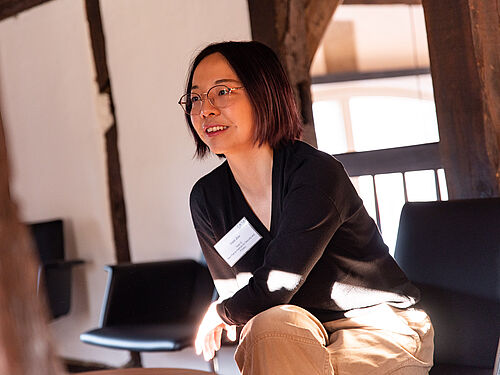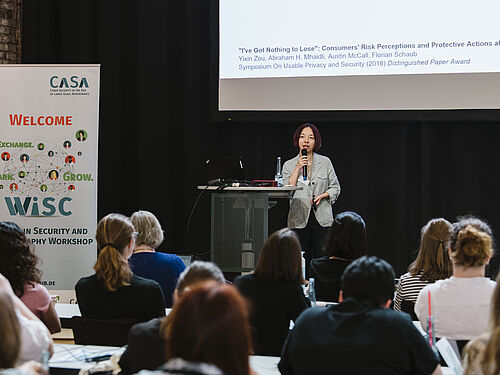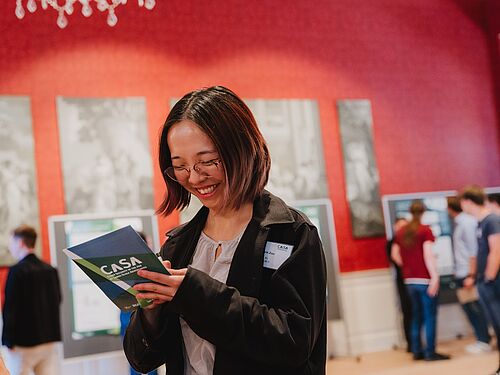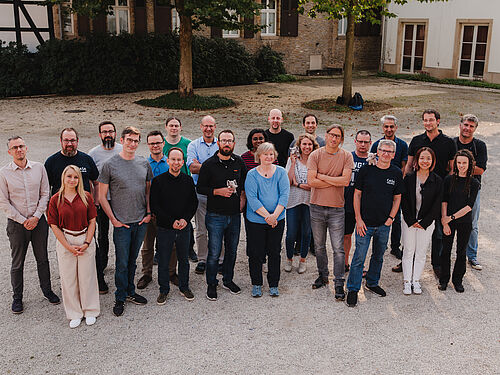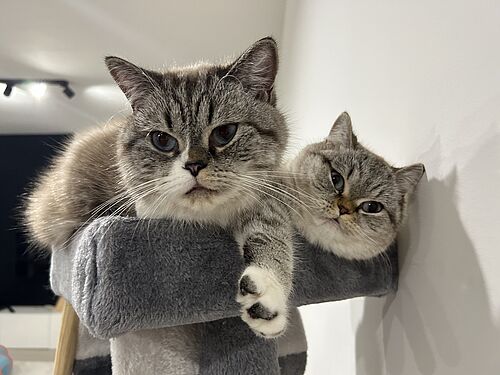About Yixin Zou
Yixin is a tenure-track faculty member at the Max Planck Institute for Security and Privacy (MPI-SP) leading the Human-Centered Security and Privacy group, and Principal Investigator (PI) at our Cluster of Excellence CASA – Cyber Security in the Age of Large-Scale Adversaries at Ruhr University Bochum (RUB), Germany. Her research spans human-computer interaction, privacy, and security, focusing on improving consumers’ adoption of protective behaviors and supporting the digital safety of at-risk populations. Within the cluster, her research is situated in our Research Hub D – "Usability," which investigates the unique role of the user in the context of IT security.
One Year at the Research Location Bochum
In spring of 2023, Yixin came to Bochum to join us and has since explored many facets of our Cluster of Excellence. This includes, of course, our annual CASA Retreat with all CASA PhDs, Postdocs and PIs, as well as exchange with our PIs at the annual PI Gathering and participation in our Women in Security and Cryptography Workshop (WISC). In this brief interview, she shares her reasons for coming to Bochum, details about her research, and highlights special experiences and challenges:
- Dear Yixin, why did you choose Bochum as a research location?
100 percent because of MPI-SP and CASA at Ruhr University Bochum, which play a crucial role in establishing the region as a hub for leading IT security research in Germany. The Max Planck Society truly enables academic freedom by encouraging us to conduct foundational, groundbreaking research and providing us with comfortable funding. The optional teaching requirements mean that I can choose how to allocate my time between research and teaching.
CASA was a significant factor that drew me to Bochum, connecting me to an excellent network of colleagues at RUB and beyond. During my first year, I met many wonderful people at CASA and initiated several collaborations. This includes not only experts like Prof. M. Angela Sasse, Prof. Alena Naiakshina, and Prof. Karola Marky at the Usability Hub but also at other hubs. For example, I am co-teaching and co-supervising a Master's thesis with Veelasha Moonsamy from the Research Hub “Secure Systems”. One of our collaborations has resulted in a publication at the IEEE Symposium on Security and Privacy 2024. I can learn from all the different research areas and bring complementary perspectives to my own research.
- Which research question drives you on a daily basis?
My research broadly focuses on human-centered security and privacy, specifically examining how laypeople react to security and privacy risks and how we can enhance the accessibility of security and privacy technologies for them. A central question addressed in my research is how to ensure equitable access for everyone, with a particular emphasis on those who are already marginalized or underserved in society, such as older adults and people with disabilities.
- Which research project fascinated you the most in the past year and why?
It is so hard to pick one! If I had to, I would name the one in which we examined the security and privacy advice local experts prescribe to laypeople in the Majority World. Previous research in this area has primarily involved participants from the US and Western Europe. Expanding this work to the Majority World is crucial to understanding how different factors can influence what security and privacy advice people receive. For instance, in South Asia, women are culturally expected to share phones within the household, and in Kenya, many rely on cybercafe managers for advice. By conducting this research, we hope to offer recommendations that make security and privacy advice more inclusive to people around the world.
This project is led by Collins Munyendo (PhD student at the George Washington University who interned in my group in 2023) and in collaboration with Veronica Rivera, Jackie Hu, and Elissa Redmiles (faculty co-advisor at Georgetown University and previously at MPI-SWS). We are also collaborating with many local experts in our target countries to navigate cultural and language barriers.
- What was your biggest challenge during your first twelve months here, and how did you overcome it?
Definitely the German language! After a few months, I can finally order food in restaurants without much difficulty, but my German is still at such a basic level that it doesn't go beyond simple conversations like this. I am trying to make more steady progress by working with a private tutor and having weekly tandems with a German colleague. Hopefully, one day, I'll be able to answer all these questions in more fluent German :)
- What unexpected, funny, or curious experiences have you had in your first year here that have stayed in your memory?
Speaking of the unexpected, in comparison to the places I stayed in the US before moving here, Bochum is quite green, and the winter here is actually not that cold or difficult to endure. It's also very walkable. Outside of work, I enjoy taking random walks and experiencing the change of scenery, from city to country vibes in just a few minutes. Additionally, my partner and I adopted two cats during our first year. They are so adorable and mischievous, making us feel at home.
Thank you, Yixin, for the insights into your first year with us! We are very happy that you are such a valuable part of our research community!
General note: In case of using gender-assigning attributes we include all those who consider themselves in this gender regardless of their own biological sex.

